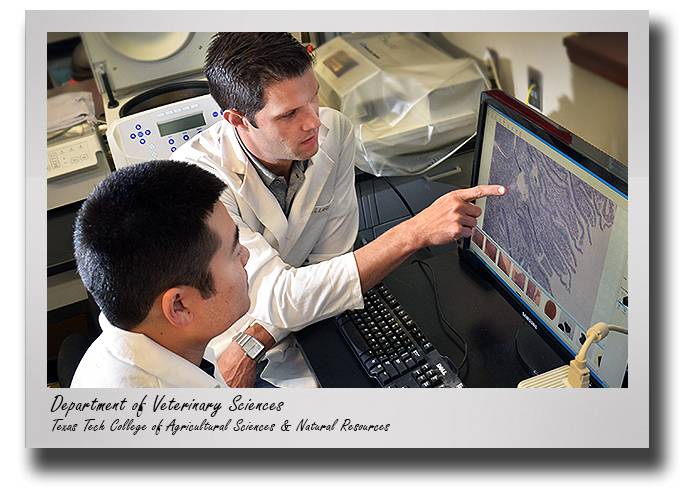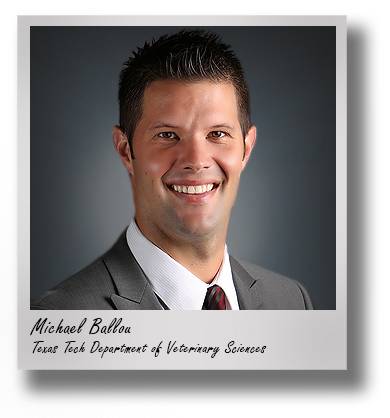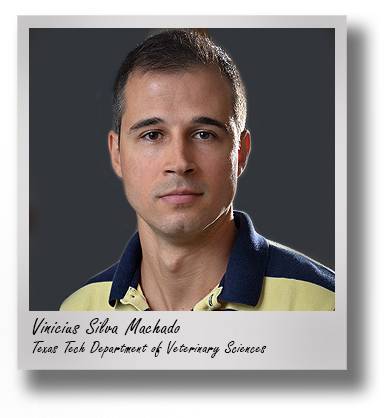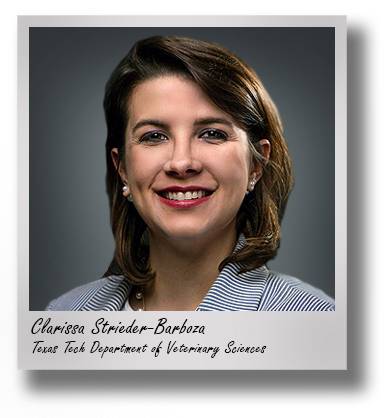Department of Veterinary Sciences
By: Norman Martin
 Established in 2017, the Department of Veterinary Sciences is designed to provide
a greater focus on research and outreach efforts in food animal health and well-being
and is intended to meet the educational and research needs of the animal-agriculture
industry and the regional veterinary community.
Established in 2017, the Department of Veterinary Sciences is designed to provide
a greater focus on research and outreach efforts in food animal health and well-being
and is intended to meet the educational and research needs of the animal-agriculture
industry and the regional veterinary community.
The department is strongly aligned with the existing Department of Animal and Food Sciences through joint appointments. The department is a graduate degree program only. It is not to be confused with a School of Veterinary Medicine, which offers doctorates in veterinary medicine (DVM). A DVM degree is a professional degree that trains individuals to be veterinarians.
The Department of Veterinary Sciences offers both a master’s and doctorate degree, both of which are research degrees. The primary focus of this department is to train individuals in population and preventative veterinary medicine. The program plans to attract people interested in pursuing a research career with a primary focus in farm animal medicine.
Office and laboratory space are in the Food Technology Building located in the heart of the Texas Tech University campus and access to laboratory animal facilities located on campus, as well as the cattle, sheep and goat, swine, and equine facilities affiliated with Department of Animal and Food Sciences.
Facilities include: office and laboratory space; the Gordon W. Davis Meat Laboratory; the Livestock Arena; the New Deal Farm, consisting of over 900 acres, swine, beef cattle, dairy calf, and sheep and goat units, a feed mill, and the Burnett Center (research feedlot); the Equestrian Center; and the Food Safety Laboratory in the Experimental Sciences Building. The department also has space in Texas Tech’s new Experimental Science Building II.
Michael Ballou, Chairperson

Ballou, a nationally-recognized nutritional biologist, earned his bachelor's degree in animal science in 2002 and his doctorate in nutritional biology with an emphasis on immunology, in 2007, both from the University of California-Davis. He was recognized by the American Dairy Science Association in 2017 for outstanding achievement in research, teaching and service, and received the Chancellor's Distinguished Research Award in 2016. His research program broadly focuses on understanding the immunological basis for diseases in high-risk populations of livestock. In the past Ballou's research has centered on understanding how the innate immune responses of animals at various physiological states are involved in resistance to diseases and modulation of innate immune responses through management and nutrition practices.
Vinicius Silva Machado, Assistant Professor

Machado, who was born in Goiania, Goias, Brazil, earned his veterinary medicine degree in 2009 from Federal University of Goias, Brazil, and his doctorate in 2015 in animal sciences from Cornell under supervision of Rodrigo Bicalho. His research interests include a variety of areas related to dairy health, such as postpartum uterine health, transition period management and immunity. Machado completed a residency program in dairy medicine in June at the Cornell University Ambulatory and Production Medicine Clinic. He is a member of the American Dairy Science Association, and the American Association of Bovine Practitioners. Machado's experience includes serving as a teaching assistant at the Veterinary School of Federal University of Goias, and Cornell's College of Veterinary Medicine.
Clarissa Strieder-Barboza, Assistant Professor

Strieder-Barboza's research focuses on uncovering the mechanisms by which dysfunctional adipose tissue remodeling negatively impacts health of periparturient dairy cattle and humans with obesity. She aims at developing collaborative research to identify novel targets and therapeutic and nutritional strategies for preventing metabolic disease, relevant to both animal and human health. The Brazil native earned her degree in veterinary medicine at the Universidade Federal de Santa Maria in Santa Maria, Brazil, and her master's degree in veterinary science-animal health from the Institute of Veterinary Clinical Sciences at the Universidad Austral de Chile in Valdivia, Chile. Her doctorate in comparative medicine and integrative biology is from the Michigan State University College of Veterinary Medicine's Department of Large Animal Clinical Science in East Lansing, Michigan.
Research News
Veterinary Sciences receives 2021 undergraduate research grant: Lauryn Flores, a junior animal science major from El Paso, Texas, has been awarded a CASNR 2021 Undergraduate Research Grant. Flores' research will focus on the effect of eicosapentaenoic acid in bovine adipocyte metabolic function and inflammatory response. Her project supervisor is Clarissa Strieder-Barboza, an assistant professor with the Department of Veterinary Sciences.
CASNR bovine infectious disease expert to play key role in new collaboration: Vinicius Machado, an assistant professor the Department of Veterinary Sciences, is part of the new Texas Tech Zoonotic & Infectious Diseases Research Center. As a collaboration of experts from different disciplines across the Texas Tech University System, the center will help detect and diagnose emerging diseases that originate in animals but could infect humans, and determine the environmental factors that can lead to their transmission, threatening the stability of society, just as COVID-19 has done.
Davis College NewsCenter
-
Address
P.O. Box 42123, Lubbock, Texas 79409-2123, Dean's Office Location:Goddard Building, Room 108 -
Phone
(806)742-2808 -
Email
kris.allen@ttu.edu
